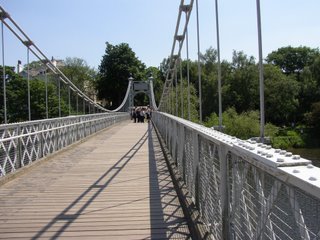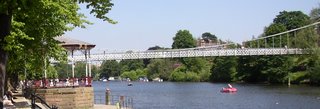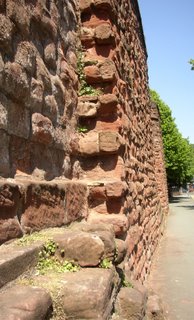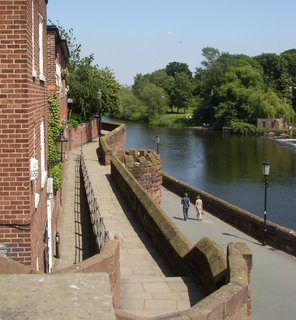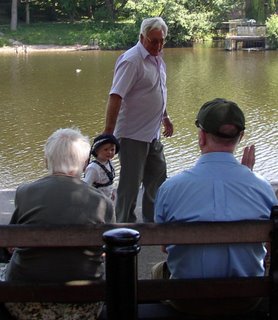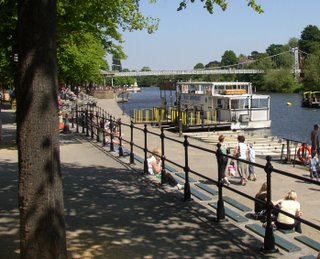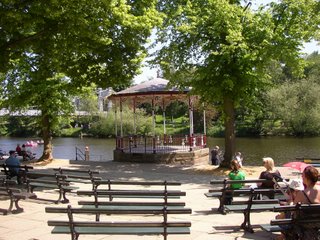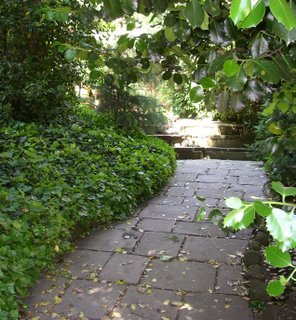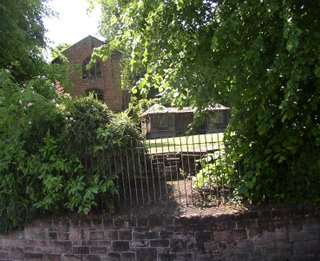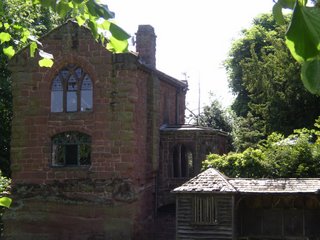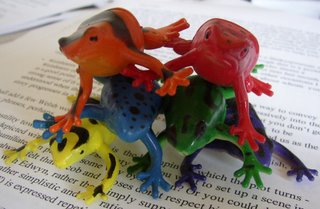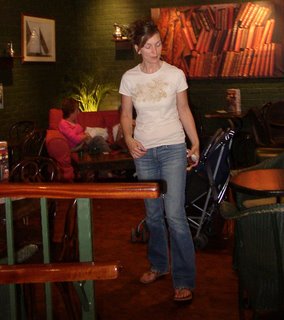
'Have you just taken a picture of me?' asked the young woman in the photograph. I had a vague feeling that she had a child with her. She smiled when I nodded and told her what I was doing.
'Well this is my favourite place!' she said, 'I'm always here.'
This is the back of Lingham's Bookshop in Heswall at the end of the Wirral (the small tongue of land between two rivers - the Dee and the Mersey - that divides north Wales from Liverpool). It is very popular.

I went there last Friday (to pick up a book by
Margaret Murphy (her latest, NOW YOU SEE ME)I had ordered back in November but forgotten about) and thought I would take the opportunity to try and find out a little more about life as an independent bookseller.
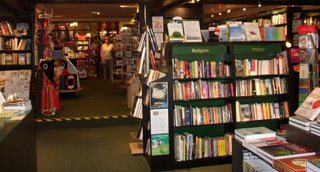
Although the exterior is fairly modest step inside and the place seems to go on and on, a passageway through books, enticing you inwards. Maybe it is the low dark ceiling or the subdued lighting or maybe the way the place is packed with bookshelves and stands, but I always feel I am entering a different world - somewhere I used to imagine when young - a cave packed with wonderful things.
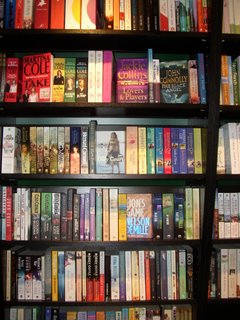
At the front is fiction, including - great joy - my book! In the wild! Then there is a children's section, packed with cuddly toys, games as well as books, which children seem to love and then, at the back, a very good cafe, which was fulsomely praised by Michael Winner in the Times when he came here for an event, where you can take your time to decide what to buy to read next.

To me Linghams is the ideal bookshop - it is independent so the manager can choose which books to stock, and the staff have worked hard to make it is a centre for people to meet. They encourage an interest in books and the arts in general. Every Thursday there is an event called First Thursday which is an excellent evening and I have been a along a couple of times. There are poetry readings by guest poets, also lectures on poets, as well as a musical group and someone discusses a painting - a different group and presenter each month. There are refreshments available and the evening ends with readings from the floor. They are well-attended as are their other events - i have been here for two of Margaret Murphy's book launches and I have also given a couple of talks on my books. These are approximately monthly and have a loyal following - about fifty to eighty people attend each event. Since these occur in the evening it must be a lot of work after a full-working day.
While I was there the manager, Sarah Browning, kindly answered my questions before dashing off to collect her children from school.
CD: How long have you owned this shop?
JB: I don't own it, I wish that I did. The shop was started in 1987. The previous owner sold it last year, but nothing has changed. I've been here thirteen years and things are carrying on as before.
CD: Was it difficult to achieve a clientele?
JB: No, there seemed to be a bit of a demand for books.
CD: Is it difficult to compete with the larger chains?
JB: Yes, particularly the local ones like there's one at Birkenhead and another in Cheshire Oaks.
CD: What do you think causes a book to ‘fly off the self’?
JB: Good publicity. Once a book appears on Richard and Judy for instance, there's a demand. Also local newspapers like the Liverpool Echo have an effect.
CD: Which sorts of books do you sell the most of?
JB: General fiction.
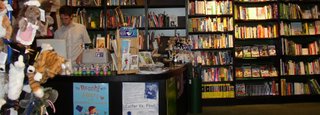
CD: Are there any sorts of books you don’t stock?
JB: Can't think of many - perhaps very academic highbow books - but we have educational books for GCSE for instance.
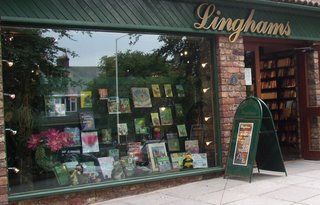
CD: Are there any books you like to promote?
JB: Depends on time of year. For instance we've made a display in the window for Father's day. We display new fiction on tables.
CD: What are your favourite books?
JB: Fiction, especially American fiction.
CD: Which events do you have here?
JB: Lots. First Thursday, author signings, talks. At the end of the year, for instance, Judith Miller is going to come along and price antiques, and we have Margi Clarke coming to sing books and give a talk.
CD: Why did you start having them?
JB: For people who had something to promote and also as a shop and community event.
CD: Which famous authors have you had in the shop?
JB: Oh lots. Jilly Cooper, Michael Winner, Joanna Trollope, Gervaise Phinn, Terry Pratchett.
CD: Do you have any people who are just personalitites?
JB: No, just authors.
CD: What was it like having Michael Winner?
JB: (Laughs) Very nice. He he liked the canapes and swore a lot - there were a few sharp intakes of breath in the audience.
CD: Which is your favourite type of event?
JB: Author signings.
CD: Which sort of people do you attract?
JB: Local people from the Wirral
CD: How long have you been providing food?
JB: Since 1999
CD: Do you think this encourages people to buy books? Why?
JB: Yes, because they have to walk through the shop to get to the food, and they can browse and eat - but have to pay for any book they get food on!
CD: Tell me about the award you recently almost won.
JB: We were runners-up in the Independent Bookseller of the year. We were nominated by the wholesaler for independent booksellers, Bertrams. We had a black tie dinner in the Natural History museum and Sandi Toksvig gave a speech - it was a great evening.
CD: How many staff do you have?
JB: 16 altogether, mostly part-time.
CD: What sort of person do you look for when you recruti?
JB: Someone who is interested in and likes books. They've had to mention it in their cv!








